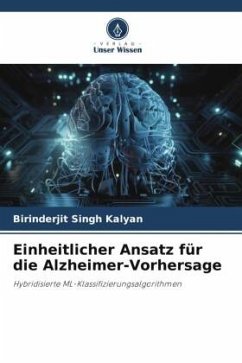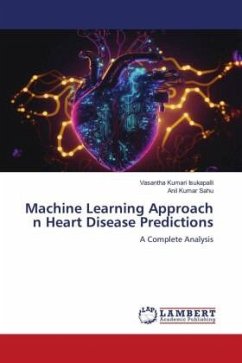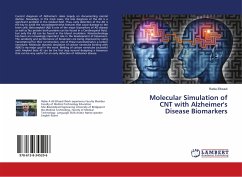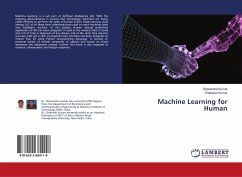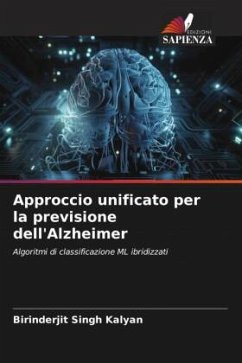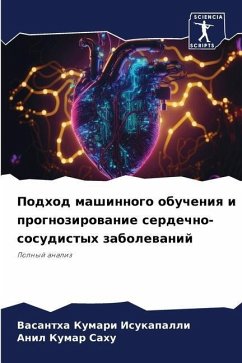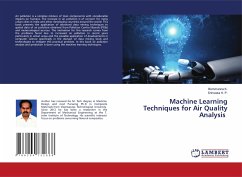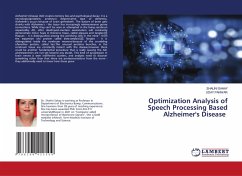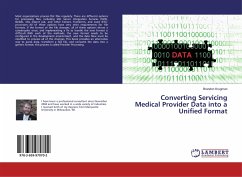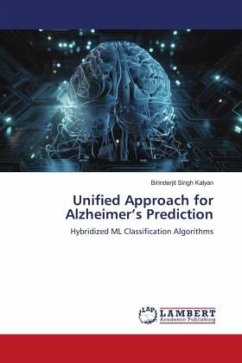
Unified Approach for Alzheimer's Prediction
Hybridized ML Classification Algorithms
Versandkostenfrei!
Versandfertig in 6-10 Tagen
29,99 €
inkl. MwSt.

PAYBACK Punkte
15 °P sammeln!
Alzheimer Disease primarily known as AD is a neuro degenerative disorder disease which destroys the cognitive function of the brain and also decreases the brain memory. This work offers a thorough exploration of the utilization of a hybrid classical ml models for AD prediction. Through the combination of various algorithms, these hybrid models strive to enhance prediction accuracy and robustness. The research also addresses the challenge of plagiarism by adhering to ethical guidelines and ensuring the originality of work. The work encompasses an analysis of the classical ml algorithms, the dev...
Alzheimer Disease primarily known as AD is a neuro degenerative disorder disease which destroys the cognitive function of the brain and also decreases the brain memory. This work offers a thorough exploration of the utilization of a hybrid classical ml models for AD prediction. Through the combination of various algorithms, these hybrid models strive to enhance prediction accuracy and robustness. The research also addresses the challenge of plagiarism by adhering to ethical guidelines and ensuring the originality of work. The work encompasses an analysis of the classical ml algorithms, the development of hybrid models, experimental results, and the discussion of findings. Additionally, relevant figures and illustrations are included to enhance understanding and provide visual representation of the research outcomes. Ml offers the potential for improving AD. The performance of the hybrid model was calculated using classification report and accuracy metrics. Developing an AD predictive model involves essential steps like pre-processing, feature extraction, and classification.





